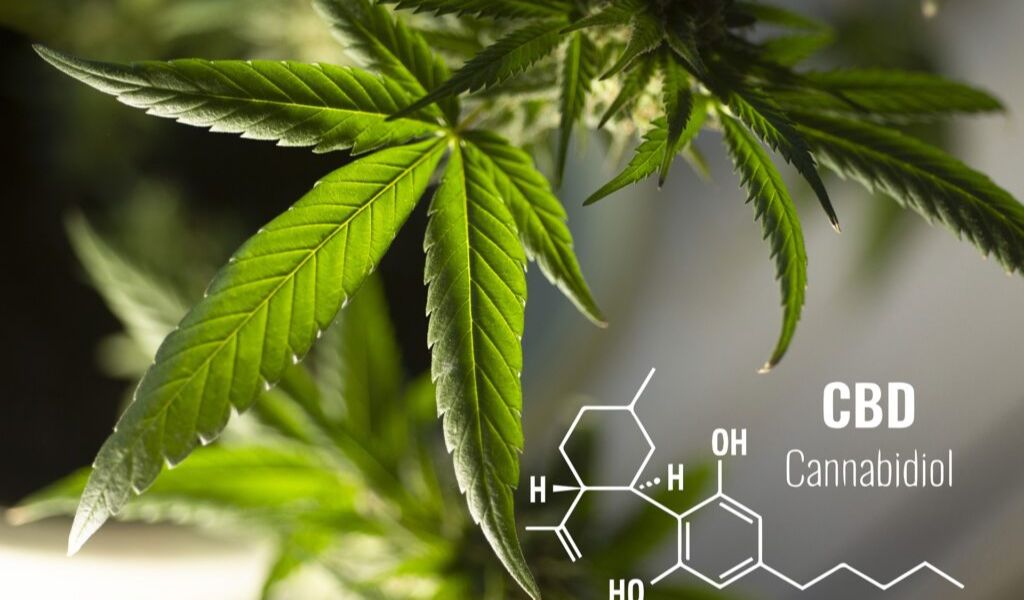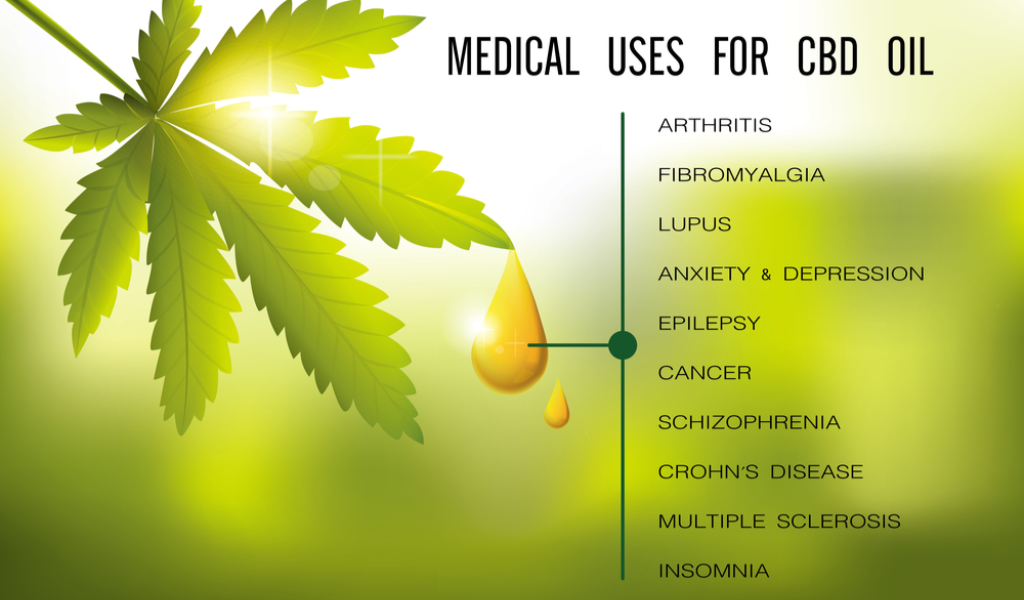In the realm of CBD, curiosity frequently arises concerning its potential influence on appetite. The effects can range from inducing hunger to merely enhancing appetite, creating a distinction that often leads to confusion regarding the question: Does CBD make you hungry?
There is a clear distinction between CBD’s impact on appetite and that of THC, an integral element of CBD. CBD itself lacks substantial evidence to suggest that it generates hunger. However, THC, found within CBD, is recognized for its capability to amplify appetite.
Within the scope of this article, we will delve into the intricate connection between CBD and appetite, striving to elucidate whether CBD possesses the ability to trigger hunger or whether it affects appetite through alternative mechanisms.
What is CBD?

CBD, short for Cannabidiol, is a natural compound derived from cannabis. It stands apart from THC, the component responsible for the psychoactive “high.” Unlike THC, CBD is non-psychoactive and doesn’t produce intoxicating effects. It can be sourced from either marijuana or hemp, both belonging to the cannabis family.
The legality and accessibility of CBD products vary depending on their source and state regulations. While products derived from hemp are legal across the nation, recreational marijuana is permitted only in specific states, such as California.
Can CBD Cause an Increase in Appetite?
Research suggests that CBD isn’t directly linked to heightened hunger, unlike THC, which is known for causing the “munchies.” However, it’s important to note that CBD could indirectly influence appetite by alleviating symptoms like nausea and stomach discomfort.
Let’s delve into this further by exploring various forms of CBD.
Does CBD Make You Hungry?
CBD oil doesn’t have a direct impact on appetite but might indirectly stimulate it by relieving nausea and stomach issues. While certain studies propose that CBD could increase appetite and lead to weight gain, others suggest it might support weight loss by curbing appetite and boosting metabolism.
Do CBD Gummies Affect Appetite?
CBD gummies can have an impact on appetite, albeit different from the THC-induced “munchies.” Incorporating CBD into foods, and beverages, or using it as medication could uniquely influence appetite.
Do CBD Capsules Affect Hunger?
CBD capsules do not directly induce hunger. According to Neurogan, CBD has the potential to modulate appetite by regulating the endocannabinoid system. This helps maintain optimal endocannabinoid levels, supporting its balanced functioning.
Do CBD Drops Stimulate Hunger?
The answer remains consistent. CBD drops don’t inherently trigger hunger but might enhance your appetite. Consequently, you might find yourself wanting to eat whether or not you feel hungry.
How Does CBD Impact Appetite?
Some individuals worry that consuming CBD supplements might lead to increased appetite due to its association with cannabis and THC. Unlike THC, which binds to specific brain receptors and releases appetite-stimulating hormones even when the stomach is full, CBD does not share this effect and doesn’t induce the “munchies.” The only scenario where CBD could cause heightened appetite is if it contains illegal levels of THC. Therefore, ensuring the product’s legal status through a certificate of analysis is crucial.
Health Benefits of CBD

CBD offers a range of potential health benefits, some of which are outlined below:
- The FDA has granted approval for CBD-based prescription medications to manage epilepsy, demonstrating its effectiveness in seizure control.
- While CBD is not a panacea, its potential in treating other medical conditions necessitates additional research and clinical trials.
- Individual experiences with CBD can vary, with some reporting positive outcomes and others experiencing different effects.
- CBD may provide health advantages such as pain alleviation, anxiety reduction, enhanced sleep, and anti-inflammatory properties.
- Further clinical investigation is needed to determine the optimal CBD products or potencies for specific conditions.
- CBD is distinct from medical marijuana as it lacks the psychoactive compound THC and does not induce a “high.”
- The legality and accessibility of CBD products hinge on their source (hemp or marijuana) and state regulations.
- Seeking guidance from healthcare professionals is advisable to receive personalized advice on using CBD for specific health issues.
Methods of Taking CBD
CBD can be consumed in various forms, including oils, extracts, capsules, patches, vapes, and topical preparations. For addressing inflammation and muscle/joint discomfort, topical CBD-infused products like creams, lotions, oils, or bath products are recommended. Sublingual options such as CBD tinctures or sprays placed under the tongue enable direct absorption into the bloodstream.
Outside the US, Sativex, a prescription CBD medication, is approved for managing muscle spasticity linked to multiple sclerosis and cancer-related pain. Within the US, Epidiolex is approved for certain forms of epilepsy and tuberous sclerosis.
CBD Safety Considerations
CBD is not without potential risks. Certain side effects may emerge from its use:
- CBD could lead to side effects like nausea, fatigue, and irritability.
- CBD might impact blood thinners and other medications by competing for liver enzymes, potentially elevating their concentration in the bloodstream. Similar interactions occur with grapefruit and certain medications.
- High doses of CBD could result in abnormal liver-related blood test results, similar to the effects seen with over-the-counter medications like acetaminophen (Tylenol). Consistent CBD users should inform their healthcare provider.
In the subsequent section, we will delve deeper into the intricacies of CBD’s side effects.
Side Effects of CBD
CBD is generally well-tolerated, with any potential side effects being mild, temporary, and generally not posing a serious health risk. It’s important to emphasize that established CBD products from reputable manufacturers are not associated with adverse health complications. Nevertheless, caution should be exercised when procuring CBD items from unreliable sources.
Common side effects of CBD might encompass:
- Fatigue and Tiredness: CBD could induce feelings of tiredness, especially at higher doses. Adjusting the dosage or timing of CBD consumption may help manage this effect.
- Drowsiness: CBD’s calming impact on the body might lead to drowsiness, particularly in those more sensitive to its sedative qualities. Engaging in tasks requiring alertness, like driving or operating machinery, is advised to be postponed until the body acclimates to CBD’s effects.
- Dry Mouth: CBD might inhibit saliva production, resulting in a dry mouth sensation. Counteracting this discomfort can be achieved by staying hydrated and drinking ample fluids.
- Digestive Distress: Some individuals could experience minor digestive issues, such as an upset stomach or diarrhea, with CBD use. These occurrences are generally brief and can be mitigated by consuming CBD alongside food.
- Nausea: While uncommon, CBD may induce mild nausea in certain cases. Should this happen, reducing the dosage or discontinuing use might alleviate the symptoms.
Will CBD Contribute to Weight Gain?
The notion that CBD triggers increased appetite or weight gain is unfounded. This misconception often stems from associating CBD with the “munchies” induced by THC.
However, CBD does not exert this effect. Any potential weight gain would likely result from consuming CBD alongside calorie-rich foods, leading to a surplus in calorie intake. It’s essential to understand that this weight gain isn’t directly attributed to CBD itself.
Can CBD Facilitate Weight Loss?
Presently, insufficient evidence exists to definitively assert that CBD directly fosters weight loss, although some researchers hypothesize its potential to aid weight management.
These experts posit that CBD might support healthier lifestyle modifications contributing to weight loss. However, relying solely on CBD as a weight-loss solution isn’t advisable.
Furthermore, CBD can play a supportive role in other aspects of your overall well-being. During significant lifestyle changes, your body benefits from additional support, and CBD could serve as a valuable addition to your daily regimen. By fostering the balanced operation of your endocannabinoid system, CBD promotes your body’s equilibrium and homeostasis.
Thus, this section provides an answer to the question: Can CBD curb your appetite?
Differences Between CBD and THC in Relation to Hunger
A study conducted by the National Institute of Health reveals that while THC increases insulin levels and triggers appetite, leading to heightened hunger, CBD oil does not elicit the same hunger-inducing effect. Multiple studies have underscored the dissimilarity between CBD and THC in terms of their impact on hunger.
Consequently, it is accurate to affirm that CBD does not incite excessive hunger or contribute to weight gain. Clinical trials involving CBD users have demonstrated that this cannabinoid can be embraced without concerns of necessitating larger clothing sizes or encountering late-night cravings for food.
It’s pertinent to acknowledge that CBD lacks any intoxicating qualities, a trait distinct from THC. As long as CBD is sourced from hemp, it remains entirely non-intoxicating and incapable of inducing a “high.” This assurance underscores that CBD can be utilized without apprehensions regarding intoxication or unwelcome effects tied to increased appetite.
At this juncture, you have gained an understanding of whether taking CBD prompts hunger. Let’s now address some related inquiries.
Frequently Asked Questions (FAQs)
Let’s address several frequently asked questions regarding the interplay between CBD and hunger.
Does CBD induce hunger akin to THC?
No, CBD does not provoke hunger in the manner that THC does. The consumption of pure CBD oil does not give rise to the phenomenon of the “munchies.” Typically, both CBD and CBG do not act as appetite stimulants. CBD can be taken with or without food based on individual preference.
Does pure CBD oil lead to increased appetite?
No, pure CBD oil does not trigger the “munchies” effect. Unlike THC, CBD does not stimulate appetite or activate hunger cravings.
Does CBD or CBG influence appetite?
While CBG might potentially heighten appetite, CBD does not serve as an appetite stimulant. However, CBD can play a role in regulating appetite.
Should I consume food when taking CBD?
For optimal outcomes, it’s advisable to consume CBD oil with food in your system. While you can take it before or after eating, the general recommendation leans toward taking it after a meal to enhance its bioavailability.
Takeaway
This article has extensively explored the question of Does CBD make you hungry. By now, you should have a clear understanding that CBD doesn’t directly cause hunger but could contribute to increased appetite. However, it’s essential to recognize that CBD also comes with potential side effects and benefits. Therefore, before incorporating it into your routine for any purpose, thorough research and consideration are crucial.
Disclaimer: The information provided in this content is intended solely for informational purposes and is not a substitute for professional medical advice, diagnosis, or treatment. It is not an exhaustive resource and should not be relied upon to make decisions about health or wellness. For inquiries regarding medical conditions, treatment choices, or health practices, it is essential to consult a qualified healthcare expert. The content presented on this website should never be considered a replacement for professional medical guidance.

